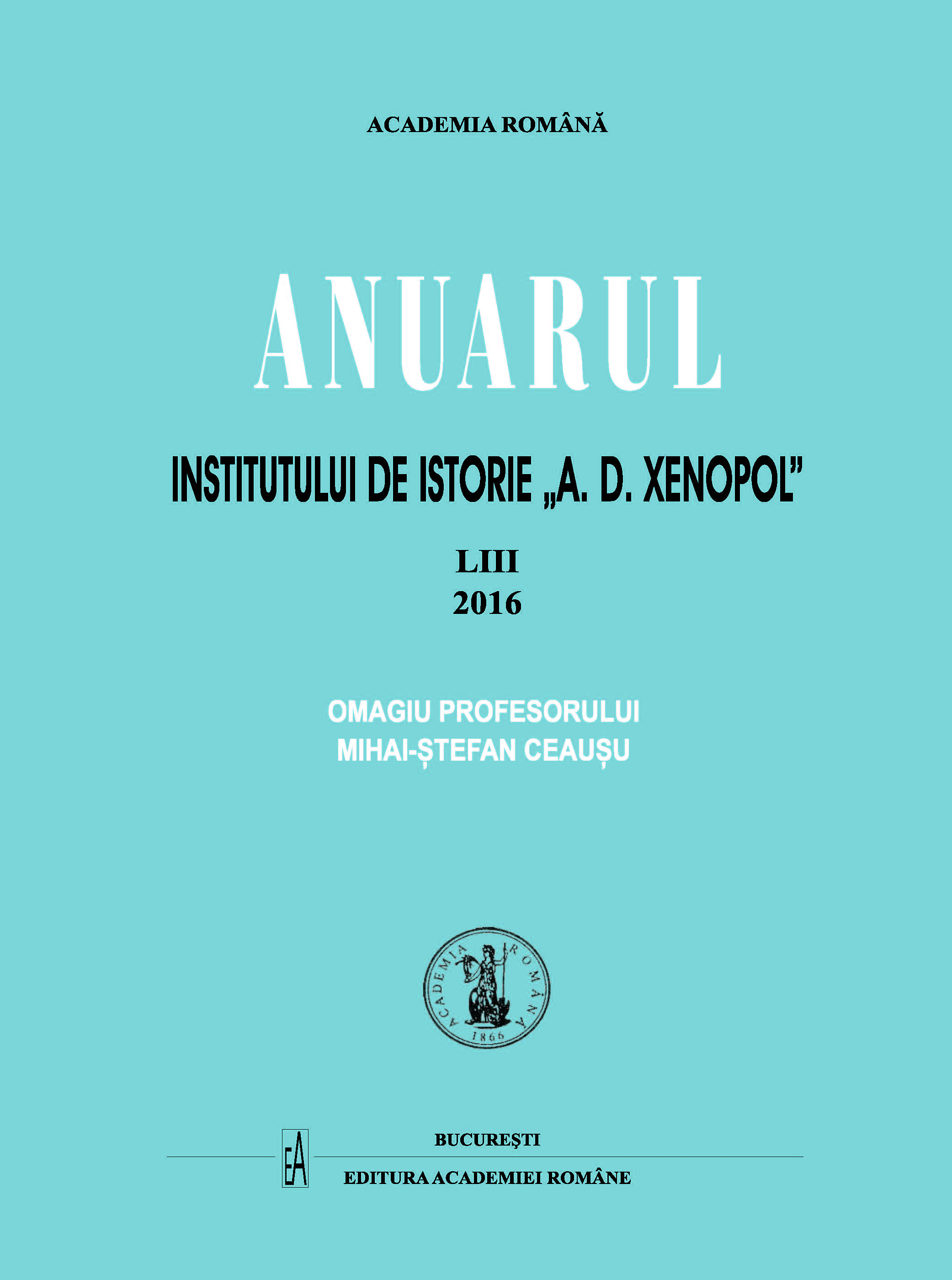„CRIZA ORIENTALĂ” ȘI IMPLICAȚIILE NEUTRALITĂȚII ROMÂNIEI (IANUARIE−IULIE 1876). NOTE ISTORIOGRAFICE ȘI RECURS DOCUMENTAR
THE “ORIENTAL CRISIS” AND THE IMPLICATIONS OF THE ROMANIA’S NEUTRALITY (JANUARY−JULY 1876). HISTORIOGRAPHICAL NOTES AND DOCUMENTARY APPEAL
Author(s): Gheorghe ClivetiSubject(s): History
Published by: Editura Academiei Române
Keywords: the Joint Guarantee of the European Powers; the oriental crisis; the Romania’s neutrality
Summary/Abstract: On the basis of an historiographical reevaluation, with an intense documentary appeal, the author tried to emphasize the fact that the neutral position of Romania during the Year 1876 signified a way toward the Independence. For the first time, the neutrality was pronounced by the conservative government, led by Lascăr Catargiu, in January 1876. The Guaranteeing European Powers reacted against the Romania’s disposition for an active neutrality, with an eventual manu militari action. The programme of the neutrality was developed by the liberal minister for the Foreign Affairs, Mihail Kogălniceanu, through diplomatic notes, in June−July 1876. To the Romania’s neutrality was connected the neutralization of the Danube River, for the sector between Vârciorova/Iron Gates and the Black Sea. The Romanian Government tried to obtain an agreement with the Ottoman Porte, concerning the statal title of Romania, the reception of the Romania’s agents within the diplomatic body, the Romanian passport etc. Such a programme of the neutrality presupposed a specific guarantee from the side of the Great Powers, meaning the neutralization of the Romania’s territory.
Journal: Anuarul Institutului de Istorie »A.D. Xenopol« - Iaşi
- Issue Year: LIII/2016
- Issue No: 53
- Page Range: 179-213
- Page Count: 35
- Language: Romanian

